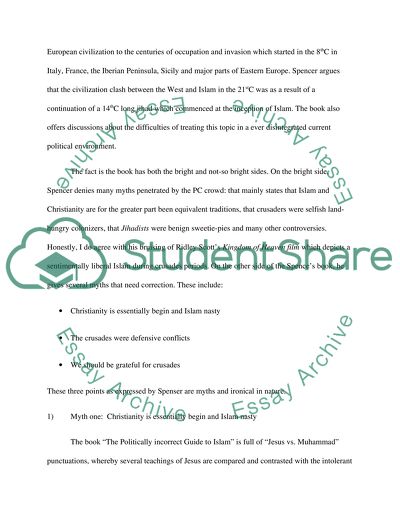Cite this document
(“The Politically Incorrect Guide to Islam by Robert Spencer Essay”, n.d.)
Retrieved from https://studentshare.org/religion-and-theology/1402820-the-politically-incorrect-guide-to-islam-by-robert-spencer
Retrieved from https://studentshare.org/religion-and-theology/1402820-the-politically-incorrect-guide-to-islam-by-robert-spencer
(The Politically Incorrect Guide to Islam by Robert Spencer Essay)
https://studentshare.org/religion-and-theology/1402820-the-politically-incorrect-guide-to-islam-by-robert-spencer.
https://studentshare.org/religion-and-theology/1402820-the-politically-incorrect-guide-to-islam-by-robert-spencer.
“The Politically Incorrect Guide to Islam by Robert Spencer Essay”, n.d. https://studentshare.org/religion-and-theology/1402820-the-politically-incorrect-guide-to-islam-by-robert-spencer.


